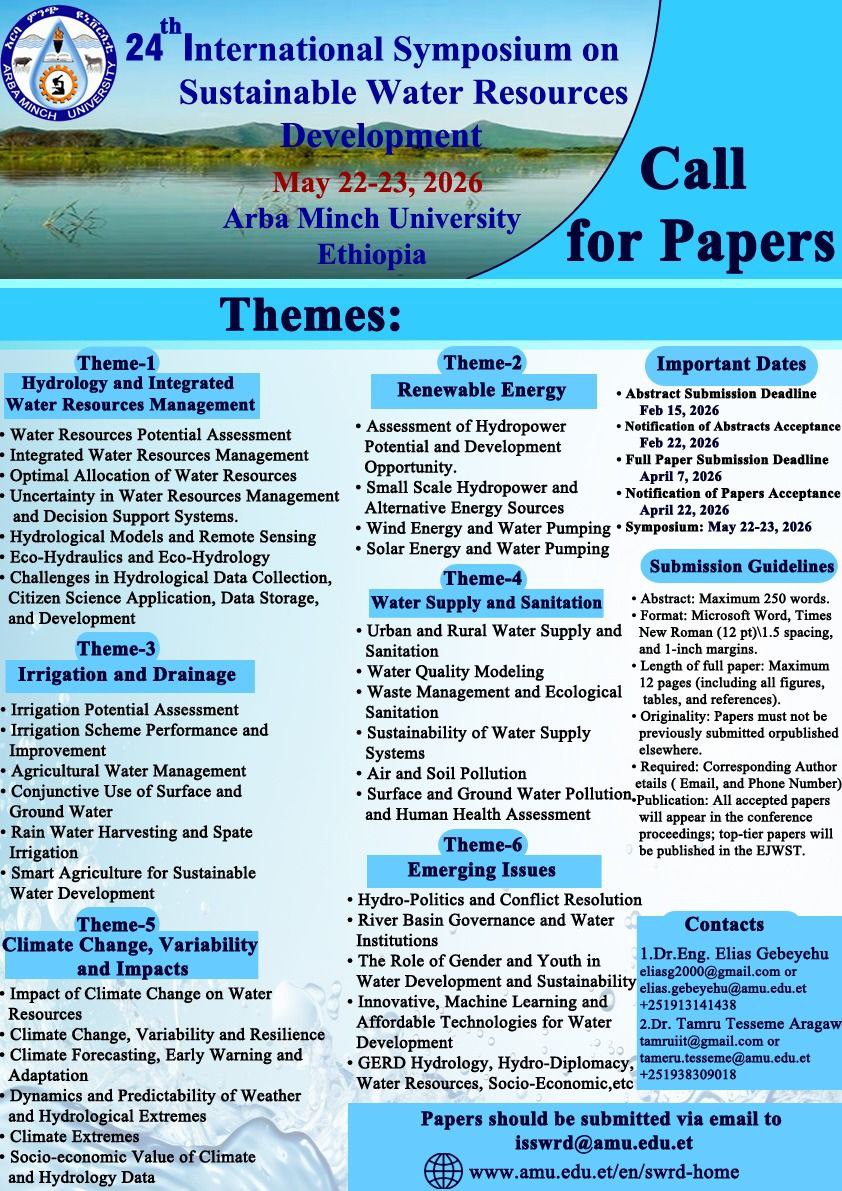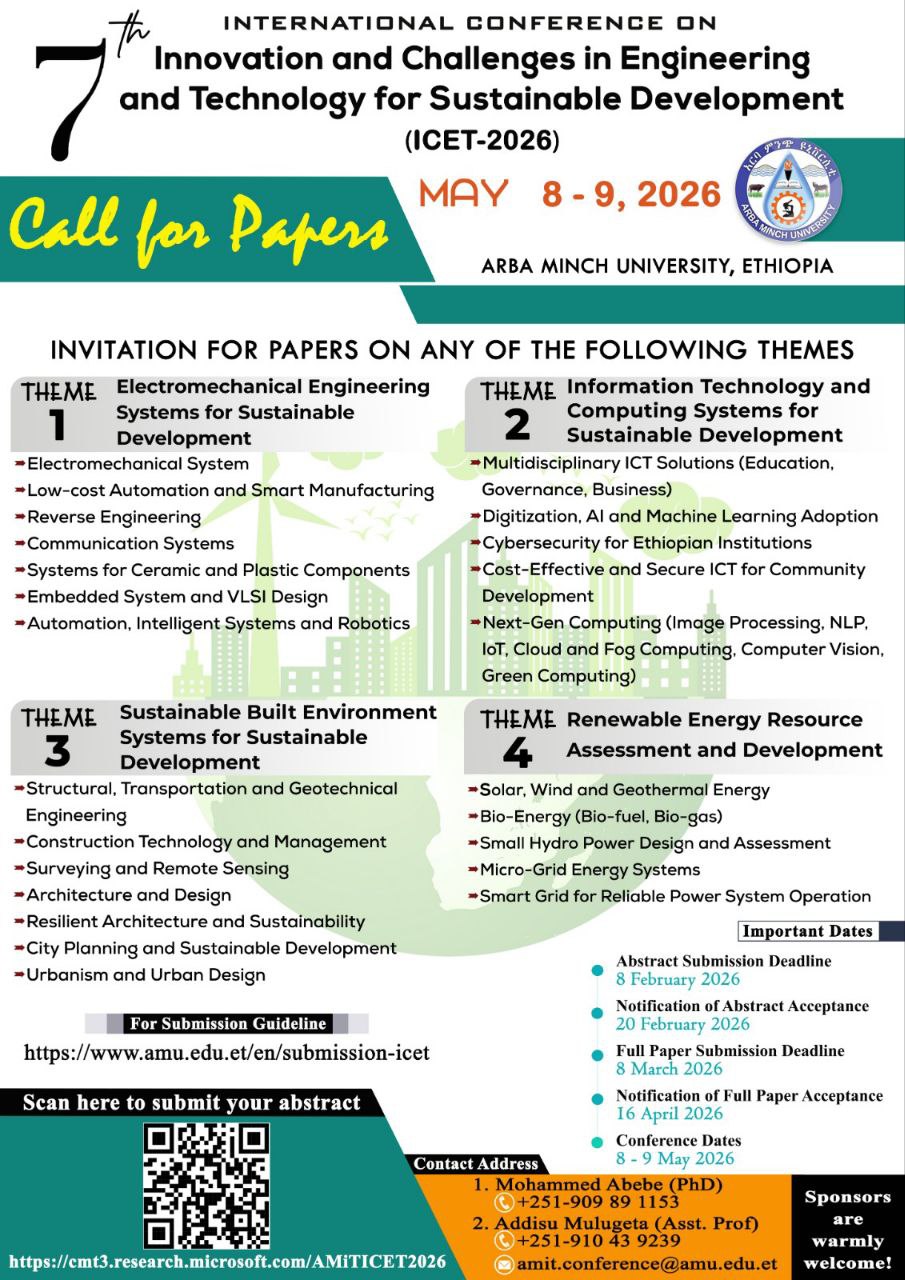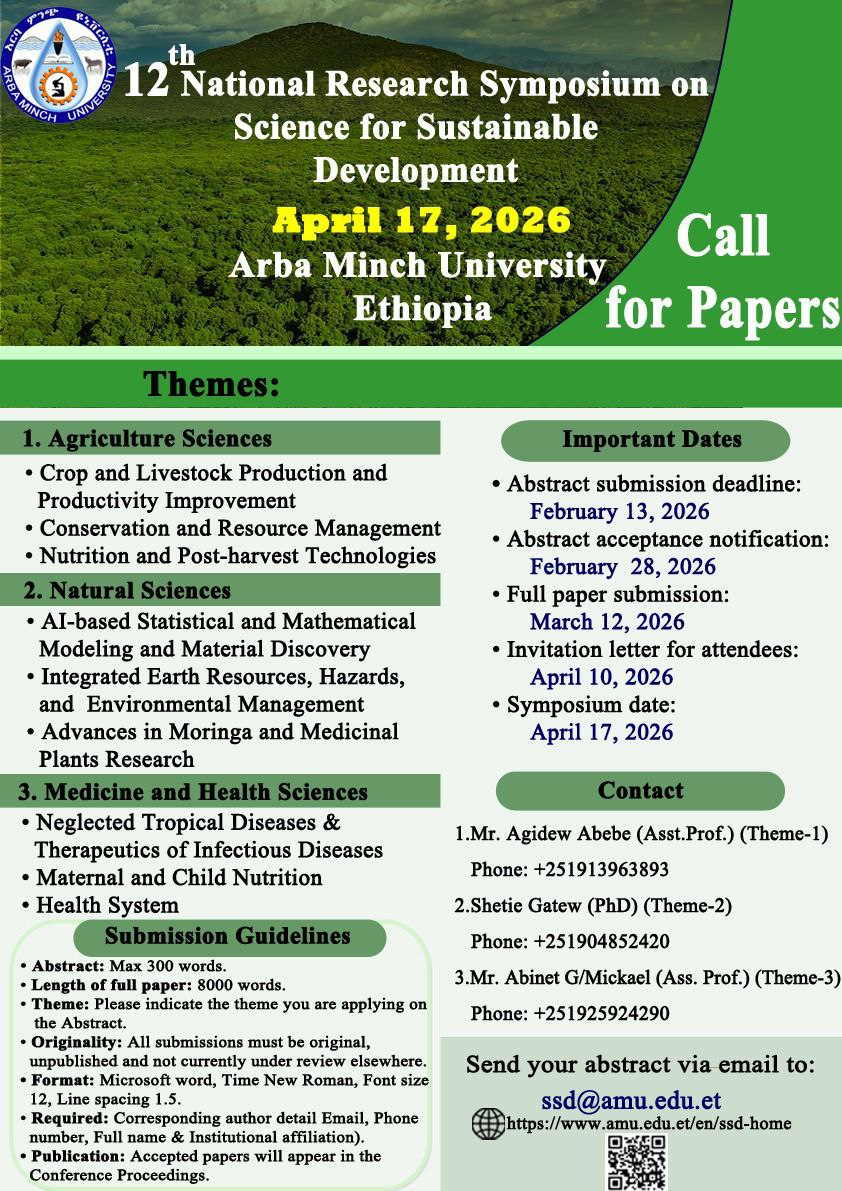Arba Minch Water Technology Institute/AWTi/ hosted the 23rd International Symposium on Sustainable Water Resources Development from May 23 to 24, 2025, at Arba Minch University (AMU). The symposium featured official speeches, keynote presentations, technical sessions, panel deliberations, and networking opportunities providing attendees with insights into cutting-edge research, real-world case studies and best practices in sustainable water resources management. Click here to see more photos.
Michael Mehari (PhD), Special Advisor to the Federal Ministry of Water and Energy, commended AMU for its dual role as an educational institution that produces skilled scholars and as a hub for impactful research and consultation forums. He emphasized that research findings from the university and collaborations with other institutions are being actively implemented at the project level by the ministry. Dr. Mehari highlighted the importance of the symposium as a platform for sharing invaluable experiences from the Nile River basin noting that over 75 percent of its waters flow to neighboring countries; such dialogues are essential for Ethiopia’s strategic planning of future water projects.
AMU President, Abdella Kemal (PhD. Ing.) urged the participants, scholars, and policymakers to collaborate in sustainable water resources development and nation building recognizing the collective commitment to drive change in water resources management. The symposium has sustainably been hosted for the past 22 years annually which stands as a testament of AMU’s determination to drive change in water resource management for sustainable future, Dr. Abdella remarked. He finally handed over the certificates for the symposium participants.
Teklu Wegayehu (PhD), Vice President for Research and Cooperation at AMU, addressing urgent challenges of water scarcity exacerbated by climate change and urbanization, called for innovative solutions and cross-sectorial partnerships to enhance sustainable water resources management. Water sustains life, the ecosystem and the economy; yet, nowadays, we are facing scarcity challenges due to climate change, population growth, rapid urbanization and unsustainable water resources management, he remarked. He also noted that the symposium's role is serving as a vital platform for sharing knowledge and expertise and giving insights for collaborative action.
Tamiru Tesseme (PhD), AWTi Scientific Director, briefed on Ethiopia's ongoing sustainable water resources management challenges and the necessity for innovative solutions and collaborative efforts. He gave a lowdown on AWTI's legacies since its founding in 1986 and its significant contributions to national projects while recognizing the critical role of its alumni in advancing Ethiopia’s development goals. Dr. Tamiru also emphasized the political, social, and ethical dimensions of water issues advocating for inclusive approaches to sustainable water management. Adding more, this year, the institute received over 150 global paper submissions showcasing commitment to academic rigor and practical relevance from which 18 were selected for oral and 4 for poster presentations, he explained.
Notable speakers including Eng. Gedion Asfaw, Chair of the Technical Committee of the Ethiopian Negotiating Team of GERD who provided insights on Ethiopia's water resources development over the past 50 years and future directions. Semu Moges (PhD), Senior Hydrologist, discussed the interconnected relationship between water, energy, and food systems emphasizing the need for integrated approaches to sustainable water resources management. In addition, Tirusew Asefa (PhD), Urban Water Supply Expert, addressed the challenges of forecasting urban water demand and the importance of sustainable urban infrastructure in the face of climate change.
Among the presentations, the intricate relationship between Ethiopia and Egypt regarding the Nile River by Kenen Elias Shoro, Assistant Professor at Jimma University, established an analytical framework to elucidate the complex interplay between the two nations and recommended the need for innovative and comprehensive analysis of water rights and management. Another significant paper presented by Abebe Kebede from AMU, AWTi, discussed the role of the tropical easterly jet in improving the predictability of summer rainfall variability over the upper Blue Nile Basin in Ethiopia.
The key themes of the symposium included hydrology and integrated water resources management, renewable energy, irrigation and drainage, water supply and sanitation, climate change impacts and emerging issues. It’s learnt that some selected papers among the presentations will be published in a special issue of the Journal of Water Management Modeling.
The event brought together esteemed ministers from the Ministry of Water and Energy and the Ministry of Irrigation and Lowlands Development, distinguished guests including Ambassador Ibrahim Indris and Eng. Teferra Beyene along with others. Tesfaye Habtemariam (PhD), AMU Research Affairs Director, anchored the program.
For more Information Follow us on:-
Website - https://www.amu.edu.et/
Telegram - https://t.me/arbaminch_university
Facebook - https://www.facebook.com/ArbaMinchUniversityccd/
YouTube - https://www.youtube.com/channel/UCOO_nclhMo8M3r74OyPBlVA
Public and International Relations Executive





